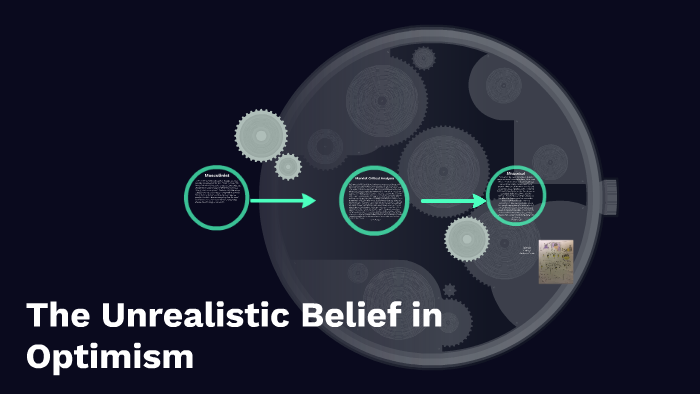
Introduction: The present study investigates the lockdown experience in Italy during the COVID-19 pandemic within a positive psychology framework, focusing on the protective role of the positive anticipatory states: optimism and hope.Īims: The aims were to verify if and how optimism and hope influenced people’s psychological wellbeing and their risk perception of the situation, addressing how individuals portrayed the present and how they imagined the future after the lockdown. The association between self‐enhancement and physical health fluctuates across measures of both constructs calling for more focussed and nuanced investigations. 03, k = 41) or narcissism (r = −.0001, k = 8), and for self‐rated health (r =. 18, k = 6) than social desirability (r =. However, this association was more pronounced for comparative judgement (r =. Overall, self‐enhancement yielded a near‐zero association with physical health, r =. Further, the meta‐analysis operationalized physical health in terms of self‐rated health, symptoms and biomarkers. The meta‐analysis relied predominantly on social desirability as an operationalization of self‐enhancement and secondarily on comparative judgement and narcissism.

This article presents the first meta‐analysis of the association between self‐enhancement and physical health (k = 87 N = 22,415). Measures that strengthen publicity and transparency regarding recovery rates should be taken to help reduce public perceptions of risk and promote an optimistic life attitude.Ī prior meta‐analysis yielded a positive relation between self‐enhancement and psychological health. Moreover, perceived control and negative affect are notable intermediary variables. These findings indicate that risk perception can make a difference in one’s life optimism during a high-risk pandemic. Finally, through Study 3 (N = 186) and Study 4 (N = 217), we revealed that the effect of risk perception on optimism can be extended to overall subjective well-being and confirmed the indirect effects via perceived control and negative affect. In Study 2 (N = 191), we manipulated perceived risk of the pandemic and determined that experiencing a high-risk pandemic psychologically led to decreased optimism. In Study 1 (N = 599), through a large-scale cross-sectional design, we showed the indirect effect of risk perception on optimism through perceived control and negative affect with structural equation modeling. In the meantime, it will also continue to develop steadily in 2022, as another new specification comes off the floor in Austin.Given that the coronavirus pandemic has become a severe concern worldwide, how can optimism be maintained during an outbreak of a collective pandemic? We propose that perceived control and negative affect could be potential explanatory factors for optimism in the face of a pandemic. The team's ambition is to fight for the world title again in the future, but that is still unrealistic for 2023. That, according to Permane, is significantly better than the 2022 car, which is already good enough for P4 among constructors. However, that can be solved in time.īesides the faster engine, the French team is also working on the car for 2023. Speed will be evident in 2022, but reliability is costing the team a lot of points right now.

An aggressive development was chosen, with which the team hopes to have long-term success.

Speaking to sporting director Alan Permane explained that the team deliberately took a risk with the engine. Read more 'That's how much million Alpine paid to loosen Gasly from Red Bull' That will pay off in 2022, although it also has negative consequences. Renault has therefore worked hard on an improved engine for this season, as engine development is frozen as of now. The A522 is competitive and lightning fast on the straight. Indeed, in 2022, the team has taken a big step forward. Read more Hamilton 'Most Marketable' F1 driver, Leclerc finishes above Verstappen A lot of confidence at Alpine


 0 kommentar(er)
0 kommentar(er)
